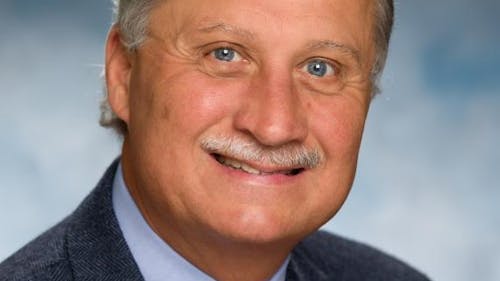Rutgers-led team receives $45 million to improve healthcare

A joint investment of $45 million will aid a Rutgers-led team in developing medical breakthroughs for New Jersey patients faster through the New Jersey Alliance for Clinical and Translational Science (NJ ACTS).
Vice Chancellor for Translational Medicine and Science Dr. Reynold A. Panettieri Jr. said the funding comes from a five-year $29 million Clinical and Translational Science Award (CTSA) from the National Institutes of Health (NIH), an $11 million commitment from Rutgers University and a $4 million NIH Research Evaluation and Commercialization Hubs grant.
The CTSA program recognizes excellence in translational science, Panettieri said.
“Translational medicine is taking things that we discover in research and putting it into patients in a very positive way. It could be devices, it could be molecules, it could be an approach. But it fundamentally changes the way we manage patients with chronic illness,” he said.
The kickoff event was held at Livingston Student Center on Thursday. State leaders in academia, industry and government met to discuss partnerships and the future of translational medicine in New Jersey.
“There are only 58 CTSAs around the country,” said University President Robert L. Barchi in his welcome address. “It brings New Jersey into a very elite group. It says something about the talent that's here, about the potential that's here at our institutions and in the state.”
The award will create a hub for translational medicine through NJACTS and will work to advance clinical trial participation in New Jersey, said Brian Strom, chancellor of Rutgers Biomedical and Health Sciences.
“Despite its population, its diversity, the enormous advantages it has and its proximity to industry, there just hasn't been that level of clinical trial involvement in the state,” Strom said. "Leveraging each of our strengths, together we'll create new infrastructure for clinical and translational research across the state. We'll engage patients and communities and work to better incorporate underserved populations."
Cathleen Bennett, president and CEO of the New Jersey Hospital Association, said gaining the trust of New Jersey’s diverse patient populations could be a challenge for the program due to skepticism surrounding research programs.
Panettieri said it is important for New Jerseyans to recognize their role in improving healthcare.
“A clinical trial participant is getting the latest, greatest therapy,” Panettieri said. “You're not a mouse. What you are is a critical link in the improvement of your care through research.”
Panettieri said more than 185 investigators are involved across Rutgers, the New Jersey Institute of Technology and Princeton University, in addition to other academic, governmental and pharmaceutical industry partners. NJACTS will also work with RWJBarnabas Health.
"We have a recipe for success here at Rutgers that we haven't recognized and that is the ability to interact with the medical school to get real guidance on what the patient needs are and to interact with industry scientists as advisors,” said Joachim Kohn, Board of Governors professor in the Department of Chemistry and director of the New Jersey Center for Biomaterials.
While there is controversy surrounding the involvement of big pharmaceutical companies in improving access to medical solutions, Panettieri said their involvement is important for creating new approaches and conducting clinical trials.
“For most of the big pharmaceutical companies, our goal is not regulatory approval. Our goal is patients getting access to our medicines,” said Rob Kowalski, executive vice president, head of regulatory affairs and United States head of development at Novartis.
NJACTS has already started setting up websites, working with partners across the state and expending $400,000 in pilot grants, Panettieri said.
“It’s been nine months, and we had NIH come and review our plans and our progress. They were astounded by how fast we've gotten up and running,” he said. “To solidify the relationships and then to discover, implement and engage. That's our plan.”



